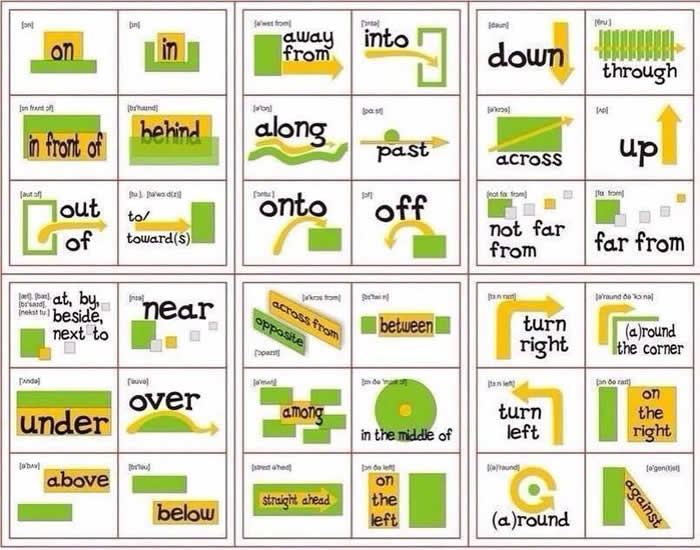Sunday, 18 December 2016
Thursday, 8 December 2016
The Importance of English Language
Wednesday, 7 December 2016
9 Cara untuk memotivasikan diri belajar Bahasa Inggeris
Tuesday, 6 December 2016
Tips Penting Peranan Ibu Bapa Di Rumah Untuk Mantapkan KBAT anak-anak

1. Banyakkan bercakap atau berkomunikasi dengan anak-anak.
3. Berikan cabaran yang bersesuaian.
3. Berikan cabaran yang bersesuaian.
4. Pantau aktiviti anak- anak dan berikan pujian.
Monday, 5 December 2016
KELAS RAHSIA SKOR BAHASA INGGERIS, UPSR, PT3, SPM. DAFTAR SEKARANG, BANDAR TENGGARA

HUBUNGI / WHATSAPP 01121681588
www.warisansynergy.blogspot.my
Tenses dan olahannya
Tenses dalam Bahasa Inggeris dan Contoh ayat
A. Pendahuluan
16 Tenses dalam bahasa Inggris dan contoh kalimatnya sangat dipengaruhi oleh waktu. Tidak seperti bahasa Indonesia, mau besok, sekarang atau dulu makan ya tetap makan tidak ada perubahan bentuk kata kerja karena pengaruh waktu. Sedangkan bahasa Inggris, kalau dulu harus menggunakan kata kerja ate, sekarang eat dan seterusnya. Artinya, dalam bahasa Inggris kata kerja sebuah perkataan juga sangat dipengaruhi oleh waktunya. Bahkan tidak itu saja, bentuk subjek kalimat juga bisa mempengaruhi bentuk kata kerjanya. So, tidak heran kalau kemudian ada tata bahasa/grammar Tenses yang mengaturnya.
Berdasarkan waktu, tenses dibagi menjadi 3 waktu:
Sekarang (Present)
Dulu (Past)
Akan datang (Future)
Masing-masing dari 3 waktu tersebut dikategorikan menjadi 3 bagian berdasarkan cara mengerjakannya:
Simple (Sederhana). Artinya tidak ingin menunjukkan bahwa pekerjaanya tersebut sedang dilakukan, telah dilakukan atau masih berlangung.
Continuous (Sedang dilakukan). Artinya ingin menunjukkan bahwa pekerjaanya tersebut sedang dilakukan.
Perfect (Telah dilakukan). Artinya ingin menunjukkan bahwa pekerjaannya telah selesai dilakukan.
B. 16 Tenses dalam Bahasa Inggris:
Berikut ini adalah 16 Tenses dalam Bahasa Inggris dan Contoh ayat. Untuk memperoleh penjelasan yang lebih detail, klik pada nama tenses yang kamu inginkan.
Simple Present
(+) S + V1 (+es/s) e.g: Sun Rises from east (matahari terbit dari timur).
(-) S + Do/Does + not +V1 e.g: I don’t know where to go.
(?) Do/Does + not + S + V1? e.g: Do you speak English (apakah kamu berbahasa Inggris?)
Fungsi:
– Untuk menunjukkan kebenaran mutlak. seperti contoh nombor 1.
– Untuk menunjukkan pekerjaan rutin. e.g: I go to school everyday
Present Continuous.
(+) S + am/is/are + Ving e.g: I am going to your home tomorrow
(-) S + am/is/are + not + Ving e.g: I am not crying
(?) Am/is/are + S + Ving? e.g: Are you still waiting for some one?
Fungsi:
– Menunjukkan pekerjaan yang sedang berlangsung
– Menunjukkan Pekerjaan yang pasti dilakukan di masa yang akan datang (contoh nomor 1)
Present Perfect
(+) S + have/has + V3 e.g: Peter has gone just now.
(-) S + have/has + not + V3 e.g: I have not done my home work yet.
(?) Have/has + S + V3? e.g: Have you already taken a bath?
Fungsinya:
– Menunjukkan pekerjaan yang telah usai pada saat sekarang.
Present Perfect Continuous
(+) S + have/has + been + Ving e.g: It has been raining since at six o’clock
(-) S + have/has + not + been + Ving e.g:I haven’t been eating for whole day
(?) Have/has + S + been + Ving e.g: Has she been waiting for me for a long this time?
Fungsi:
– Untuk menunjukkan pekerjaan yang sudah terjadi dan masih ada kemungkinan terjadi sampai nanti.
Simple Past.
(+) S + V2 + O e.g: I went to school alone yesterday.
(-) S + did + not + Inf (V1) e.g: You didn’t tell that you took my money yesterday.
(?) Did + S + Inf (V1) e.g: Did you came home last year?
Fungsi:
Menunjukkan pekerjaan yang terjadi pada masa lampau, tanpa ingin menekankan bahwa ia sedang, atau telah selesai melakukan pekerjaan tsb.
Past Continuous.
(+) S + was/were + Ving e.g: I was sleeping when you came.
(-) S + was/were + not + Ving e.g: You weren’t listening to me when I was singing
(?) Was/were + S + Ving e.g: Was she still reading while father called her?
Fungsi:
Untuk menunjukkan pekerjaan yang sedang terjadi pada masa lampau, ketika pekerjaan lain terjadi, baik pekerjaan lain itu menyela (seperti contoh nomor1) atau terjadi bersama-sama (seperti contoh nomor 2).
Past Perfect.
(+) S + Had + V3 e.g: She had gone before you came
(-) S + Had + not + V3 e.g: I hadn’t already taken a bath when you visit me
(?) Had + S + V3 e.g: had you already graduated from senior high school last year?
Inspirational Quotes dan Ertinya
“You’ll learn, as you get older, that rules are made to be broken. Be bold enough to live life on your terms, and never, ever apologize for it. Go against the grain, refuse to conform, take the road less traveled instead of the well-beaten path. Laugh in the face of adversity, and leap before you look. Dance as though EVERYBODY is watching. March to the beat of your own drummer. And stubbornly refuse to fit in.”
“Anda akan belajar, saat usia bertambah, bahwa peraturan dibuat untuk dilanggar. Cukup berani untuk hidup pada istilah Anda, dan tidak pernah meminta maaf untuk itu. Pergi melawan arus, menolak untuk menyesuaikan diri, mengambil jalan yang jarang dilalui bukan jalan yang dipukuli. Tertawa dalam menghadapi kesulitan, dan melompat sebelum Anda melihat. Menari seakan SEMUA ORANG menonton. Berbaris dengan ketukan drum Anda sendiri. Dan keras kepala menolak untuk menyesuaikan diri. “



























